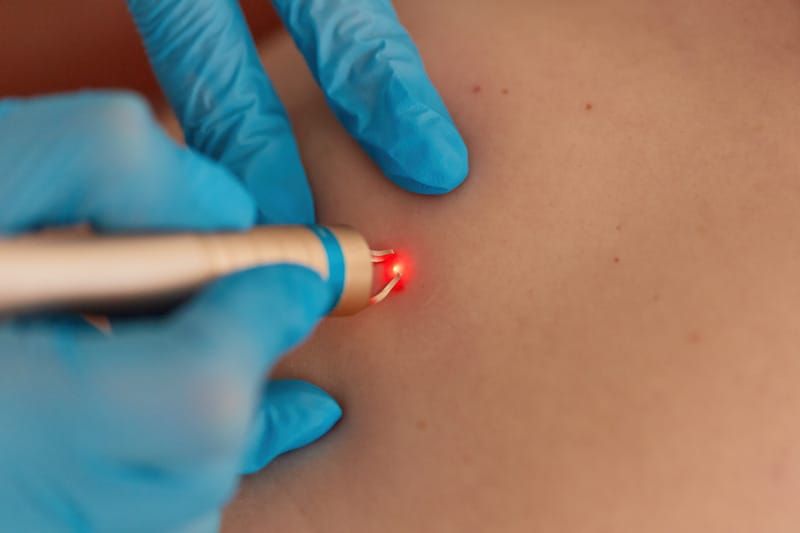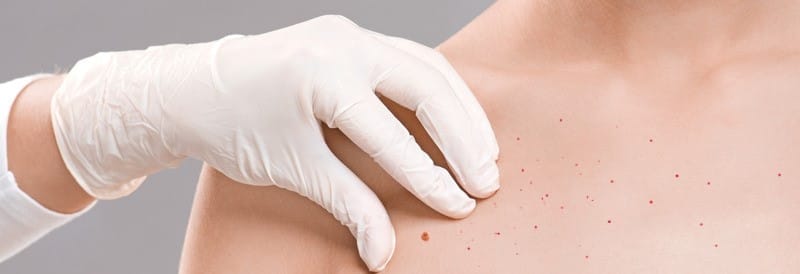As we know, acne is a common skin condition that affects many people worldwide.
Usually, it is associated with areas like the nose, face, and chin, but acne does not constantly develop on the face. It usually appears on oily skin and skin containing clogged pores which can be anywhere, irrespective of a body part.
Truncal acne is a term that is used explicitly for chest acne. It can be a frustrating and rough experience to deal with chest acne. But don’t worry, Better Life Care will provide you with all the quality knowledge and the ultimate guide to treating chest acne.
Chest Acne:
Acne is a skin condition usually caused by clogged hair follicles due to oil, dead skin cells, and bacteria. In chest acne, pimples, blackheads, and whiteheads are formed on the chest area, ultimately forming acne.
Causes of Chest Acne:
Several other factors also can contribute to the development of chest acne, including:
- Hormones
Usually, the overproduction of sebum (a type of oil that clogs pores), particularly in women due to hormonal imbalances, results in chest acne
- Sweating
Over-sweating is another reason for chest acne, especially after excessive exercise. So it’s better to change your sweaty shirt after exercise.
- Tight Clothing
Wearing tight clothing, especially during exercise, can trap sweat and oil against the skin, leading to acne.
Treatment Options:
Some treatments or home remedies can be helpful to treat chest acne. In this regard, there are the following recommendations:
Cleanse Regularly
Wash your chest regularly with cleanser as recommended by your dermatologist it will remove dirt and excess oil and will help treat acne.
Exfoliate
An exfoliating scrub once or twice a week can help remove dead skin cells as they clog pores and form acne.
Wear Breathable Clothing
Another method to prevent acne is to wear loose clothing that feels comfortable and non-irritating. This will keep your body airy and helps your skin to breathe.
Tight clothing can trap bacteria, dirt, and oil, forming acne.
Moisturize
Use moisturizer as recommended by your dermatologist according to your skin condition it will help you to keep acne away.
Consult with a dermatologist.

To safely remove buildup in clogged pores and prevent infection and scarring, consult a dermatologist who can also provide treatment options for acne breakouts. Take the initiative to learn more about treatment options and create an acne skincare routine
to manage acne.
Effective Ways to Prevent and Manage Acne
Preventing and managing acne involves adopting healthy lifestyle habits and using suitable skincare products. Here are some tips for acne prevention and management:
- Use non-comedogenic skincare and makeup products.
- Avoid touching or picking at acne lesions
- Wear breathable fabrics and avoid tight-fitting clothing
- Manage stress through relaxation techniques, such as meditation or yoga
- Consume fruits, vegetables, whole grains, and lean proteins as part of a balanced diet
- Drink plenty of water and avoid sugary drinks to stay hydrated
Natural Remedies:

Some natural remedies that may help improve acne include:
- Aloe Vera:
It has anti-inflammatory properties that can soothe inflamed facial acne lesions
- Tea Tree Oil:
Contains antioxidants that can reduce inflammation and prevent new breakouts
- Zinc:
Zinc containing applicable provides anti-inflammatory properties that can improve acne.
Medical Treatments:
Sometimes proper medical treatment is required for the treatment of chest acne. It may be a topical treatment including some medicine and applicable:
Salicylic Acid:
Salicylic acid is beneficial in treating acne as it helps reduce swelling and redness of acne breakouts. Furthermore, it is helpful for other skin conditions to loosen thickened skin covering or dead skin cells to remove them quickly.
Alpha hydroxyl Acids:
Alpha hydroxy Acids (AHAs) are used in different anti-ageing and skin care products. These acids help promote blood flow and collagen while preventing acne scars, brightening your skin’s surface, and preventing severe acne breakouts.
Does Benzoyl peroxide works:
Benzoyl peroxide is an antiseptic that fights bacteria and makes skin bacteria-free. Professional recommends using it usually two times a day, don’t use more oil in excess amounts, as too much use can irritate your dry skin too.
Antibiotics:
Antibiotic tablets can also treat acne, and topical antibiotics are also available. They prevent some types of bacterial infections by killing bacteria or preventing them from spreading. But they do not work for everything.
Advanced Acne Treatment: In-office Procedures and Technologies

If traditional acne treatments do not work, you may consider advanced in-office procedures and technologies that can help improve acne symptoms. Some of these treatments include:
- Chemical peels: Dead skin cells can be removed, and pores can be unclogged
- Microdermabrasion: Reduces the appearance of acne scars and exfoliates the skin
- Light therapy: Reduces inflammation and kills acne-causing bacteria
- Laser therapy: can reduce acne inflammation and improve the appearance of acne scars
Conclusion
Chest acne, or Truncal, is a skin condition resulting from clogged pores. Yes, it is frustrating to deal with it, but it can be cured with proper treatment and guidelines. There are medical and nonmedical conditions, but taking preventive measures is better. It’s recommended to visit dermatologists so that they can provide helpful information and guidelines to treat it. We have provided some information and guidelines in the above article to make it easy. Remember, things that work for one person may not work for another.
FAQs
Hormones, sweat, poor hygiene, meds, genetics, and diet can cause chest acne. These factors increase oil, clog pores, and cause inflammation, leading to breakouts. Yes, stress can contribute to hormonal imbalances that can lead to acne, including chest acne. NO! It is not a good idea to do so. Yes, it’s tempting, but it can cause irritation and lead to sewer conditions such as scarring. So it’s better to avoid popping pimples. Yes! Chest acne can be a sign of polycystic (a medical condition). Yes, silk healthy provides an authentic and proper guide to getting rid of chest acne: Cleanse Regularly Yes, stress can contribute to hormonal imbalances that can lead to acne, including chest acne. NO! It is not a good idea to do so. Yes, it’s tempting, but it can cause irritation and lead to sewer conditions such as scarring. So it’s better to avoid popping pimples. Hormones, sweat, poor hygiene, meds, genetics, and diet can cause chest acne. These factors increase oil, clog pores, and cause inflammation, leading to breakouts. Yes, silk healthy provides an authentic and proper guide to getting rid of chest acne: Cleanse Regularly Avoid Touching Your Chest Exfoliate Wear Breathable Clothing MoisturizeWhat causes chest acne breakouts?
Can stress cause chest acne?
Is it okay to pop chest acne?
Can chest acne be a sign of a more serious condition?
Is there any quick guide to getting rid of chest acne?
Avoid Touching Your Chest
Exfoliate
Wear Breathable Clothing
MoisturizeCan stress cause chest acne?
Is it okay to pop chest acne?
What causes chest acne breakouts?
Is there any quick guide to getting rid of chest acne?



Comments are closed.